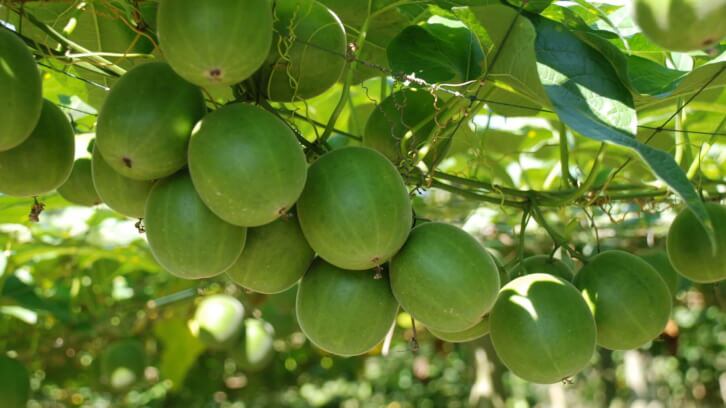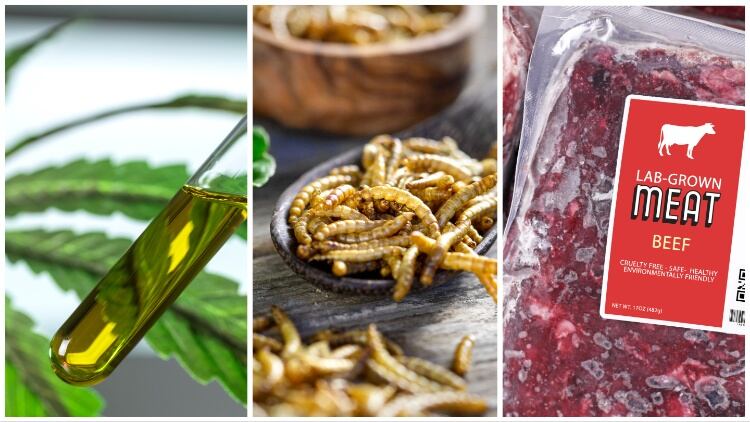The decision follows 7 years of evidence collecting from Monk Fruit Corp, a global monk fruit company, which prepared and submitted the dossier to the FSA.
Today (27 June 2024) their work has paid off, having received confirmation that the ingredient can now be used in food and beverage products sold in the UK.
The FSA has also provided independent verification monk fruit decoctions were consumed prior to the novel food cut-off date in the EU. As the UK was an EU member until February 2020, the decision still holds weight and means the ingredient can also be sold in the EU.
David Thorrold, Monk Fruit Corp general manager of sales & marketing, said the company is delighted with the decision: “This adds a great-tasting, clean-label, 100% natural option to the sugar reduction tool kit which will have a significant positive impact for food and beverage companies and consumers.
“There is a huge potential for monk fruit in the UK and EU. Monk fruit decoctions are a unique food ingredient because they contribute sweetness while adding minimal sugar and calories. This is thanks to the sweet mogroside molecule which occurs naturally in the fruit".
It is worth noting that monk fruit decoctions are not equivalent to monk fruit extract sweeteners which are considered a food additive.
As Thorrold explained: "Monk fruit extract sweeteners are made by selective processing which concentrates the mogroside V molecule, in some cases to a concentration of more than 50%. Currently there is no UK or EU approval for monk fruit extract sweeteners.
“Monk Fruit Corp's monk fruit decoctions, which have been confirmed by UK FSA as not novel food, are processed in a way which does not selectively concentrate the sweet mogroside molecules, and are therefore equivalent to the traditional food, and not classified as a sweetener food additive.”
The method of manufacture and specification for the monk fruit decoctions accepted as not novel food by UK FSA were determined by Monk Fruit Corp after extensive analysis of traditional consumption and preparation methods.
The company has now developed a new commercial offering for the UK and EU in order to have a product that complies with the specification.
“Monk fruit decoctions are a 100% natural, great-tasting, sweet, low-calorie traditional food, as opposed to a food additive. The ingredient declaration will be ‘concentrated monk fruit infusion’, which makes it a consumer-friendly, clean-label option for sugar reduction.
“Our experience with monk fruit in other markets tells us that consumers readily accept the new ingredient because of the ‘fruit’ designation which conveys safety, familiarity, and great taste.”
Today’s decision also aligns the UK with the US, Canada, Australia, India, Mexico, New Zealand and Israel where regulatory approvals for monk fruit as a non-novel sweetener are already in place.
Many of these approvals have also been swayed by Monk Fruit, which serves several large f&b companies across the globe.
“The UK FSA ruling today is the latest in a long history of regulatory approvals which we have achieved. Monk Fruit Corp, along with our in-market partners, have been responsible for the first approval of monk fruit ingredients for general use in food in the USA, Canada, Australia, India, Mexico, New Zealand and Israel.
“We are delighted to have achieved this regulatory milestone in the UK which further solidifies our position as the world's leading and most innovative monk fruit company".
Thorrold added that many of its current international customers will likely be its first UK patrons too.
“A number of our large global customers have been eager to extend the use of our current monk fruit decoctions to their products in the UK and EU. We anticipate that these customers will be launching new products incorporating our new UK and EU-compliant monk fruit decoctions in the near future.”
This follows news earlier in the year of a consultation launched by the FSA and Food Standards Scotland (FSS) on two proposed changes to the way it authorises regulated products.
Meanwhile, Food Manufacture’s editor hears from several experts in a discussion around exporting why now – in spite of everything – might be the perfect time to expand your market across seas.





